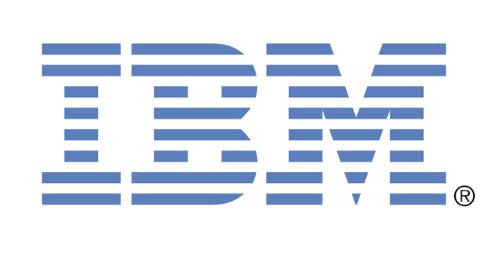electronic medical records (EMRs)
See the following -
How to Prepare for the API Requirements of the Cures Act
 As of April 5, 2021, the U.S. ONC Cures Act Final Rule Compliance Timeframe is in effect. Healthcare providers, Health IT developers, Health Information Exchanges (HIEs), and Health Information Networks (HINs) will have until October 6, 2022, to provide patients with access to all their Electronic Health Information (EHI). There are several requirements that providers, developers, and exchanges must adhere to. Among them are Conditions and Maintenance of Certification requirements for Information Blocking, Communications, and Application Programming Interfaces (APIs). To help you navigate this compliance timeframe, we've asked our J P System's HL7 FHIR® expert, Jay Lyle, what does one need to know about APIs and data standards. Jay has been co-chair of the HL7 Patient Care Work Group for 8 years and is an expert in HL7 data standards development and APIs.
As of April 5, 2021, the U.S. ONC Cures Act Final Rule Compliance Timeframe is in effect. Healthcare providers, Health IT developers, Health Information Exchanges (HIEs), and Health Information Networks (HINs) will have until October 6, 2022, to provide patients with access to all their Electronic Health Information (EHI). There are several requirements that providers, developers, and exchanges must adhere to. Among them are Conditions and Maintenance of Certification requirements for Information Blocking, Communications, and Application Programming Interfaces (APIs). To help you navigate this compliance timeframe, we've asked our J P System's HL7 FHIR® expert, Jay Lyle, what does one need to know about APIs and data standards. Jay has been co-chair of the HL7 Patient Care Work Group for 8 years and is an expert in HL7 data standards development and APIs.
- Login to post comments
Humetrix Demonstrates DIRECT and Mobile Enabled Provider-to-Patient EHR Exchange for Interoperability with the Cerner EHR at Health 2.0 Fall Conference
At the Health 2.0 Fall Conference Humetrix will demo its suite of apps; iBlueButton, SOS QR, and Tensio at booth #308. On October 3, Humetrix and Cerner will participate in a session entitled “Breaking Down the Silos” taking place at 11:20 a.m. During the session, Humetrix will demo the award-winning mobile health platform, iBlueButton, which enables patients to immediately receive, at any point of care, their summary health record from any federally certified EHR system using the DIRECT secure messaging protocol.
- Login to post comments
Humetrix to Demo its Award-Winning SOS QR Emergency & Disaster Preparedness Mobile Platform at FCC Accessibility Innovations Expo
Humetrix, developer of the award-winning SOS QR emergency mobile platform, last year’s recipient of the FCC Chairman’s Awards for Advancements in Accessibility (AAA), is honored to participate in this year’s FCC Accessibility Innovation Expo taking place on October 23 in Washington, DC.
- Login to post comments
Humetrix To Present iBlueButton® Mobile Health Information Exchange Apps For Use In United Kingdom
Humetrix has been invited by the National Health Service (NHS) to present a UK version of its award-winning iBlueButton® mobile platform at the NHS Innovation Expo 2013 in London, Europe’s most exciting healthcare innovation event... Read More »
- Login to post comments
Humetrix Upgrades iBlueButton App To Support Caregivers; Demos New Features At mHealth Summit Booth 1407
Humetrix will today preview version 5.0 of its signature iBlueButton app, enhanced with “caregiver” features that allow anyone to view, download and share with doctors their own medical records, as well as those of loved ones, all via their smartphone or tablet. [...] Read More »
- Login to post comments
Hurting Financially, Wake Forest Baptist Adds Cost-Cutting Measures
Revenue declines along with the disruptive and costly implementation of a new electronic medical records system have forced Wake Forest Baptist Medical Center to take additional cost-cutting measures this year, according to its CEO, Dr. John McConnell. Read More »
- Login to post comments
IBM Pitched Its Watson Supercomputer as a Revolution in Cancer Care. It’s Nowhere Close
It was an audacious undertaking, even for one of the most storied American companies: With a single machine, IBM would tackle humanity’s most vexing diseases and revolutionize medicine. Breathlessly promoting its signature brand — Watson — IBM sought to capture the world’s imagination, and it quickly zeroed in on a high-profile target: cancer. But three years after IBM began selling Watson to recommend the best cancer treatments to doctors around the world, a STAT investigation has found that the supercomputer isn’t living up to the lofty expectations IBM created for it. It is still struggling with the basic step of learning about different forms of cancer...
- Login to post comments
IBM Watson Health Announces Collaboration to Study the Use of Blockchain Technology for Secure Exchange of Healthcare Data
 IBM Watson Health has signed a research initiative with the U.S. Food and Drug Administration (FDA) aimed at defining a secure, efficient and scalable exchange of health data using blockchain technology. IBM and the FDA will explore the exchange of owner mediated data from several sources, such as Electronic Medical Records, clinical trials, genomic data, and health data from mobile devices, wearables and the “Internet of Things.” The initial focus will be on oncology-related data...
IBM Watson Health has signed a research initiative with the U.S. Food and Drug Administration (FDA) aimed at defining a secure, efficient and scalable exchange of health data using blockchain technology. IBM and the FDA will explore the exchange of owner mediated data from several sources, such as Electronic Medical Records, clinical trials, genomic data, and health data from mobile devices, wearables and the “Internet of Things.” The initial focus will be on oncology-related data...
- Login to post comments
IBM’s Dr. Watson Is NOT A Meaningful User
IBM’s Dr. Watson of Jeopardy! fame has finally completed its residency and fellowships and, presumably to its creators’ utter delight, is now a practicing Oncologist. The prodigy “cognitive system” completed its training in less than a year at the illustrious Memorial Sloan-Kettering Cancer Center, and although only proficient in lung cancer right now, Dr. Watson’s career as an advisor to oncologists everywhere is off to a great start... Read More »
- Login to post comments
Inside the Drive to Collect DNA from 1M Veterans and Revolutionize Medicine
The Department of Veterans Affairs is gathering blood from 1 million veterans and sequencing their DNA. At the same time, computer scientists are creating a database that combines those genetic sequences with electronic medical records and other information about veterans’ health. The ultimate goal of the project, known as the Million Veteran Program, is to uncover clues about disorders ranging from diabetes to post-traumatic stress disorder...
- Login to post comments
Interns spend More Time With Computers Than Patients: Study
The time medical interns spend interacting with patients continues to drop, taking up only 12% of their working hours, according to a study at Baltimore's Johns Hopkins Hospital and the University of Maryland Medical Center. Read More »
- Login to post comments
Interoperability and Patient Access Just Became Law
When President Obama signed the 21st Century Cures Act (HR 34) into law in December, the world of healthcare IT was turned on its ear. Interoperability and access – two concepts that have eluded old-school healthcare IT vendors – became enshrined as the cornerstone of the newest and most comprehensive healthcare innovation legislation to date. In addition, although the Act didn’t intend to push healthcare IT into the cloud age, it may very well have, as the required access and sharing will be exceedingly difficult to accomplish without an agile cloud-based system...
- Login to post comments
Is Epic Stifling Health IT Innovation?
In many ways and definitely based on the buzz, Epic is at the top of the hospital EMR market. According to one estimate, about 40 percent of the U.S. population has its medical information stored in an Epic EMR, a stunning number given the level of competition in the hospital EMR space. Read More »
- Login to post comments
Is IT Innovation Driving Physicians Out The Door?
Rather than face the perfect storm of decreasing reimbursement, increasing costs, legislative mandates, and penalties around technology adoption, information exchange, and Meaningful Use, an alarming number of physicians are making the decision to "go quietly into the night" and retire early from practice. Read More »
- Login to post comments
IT Iconoclasts: Experts Offer Dissent On Policy Issues, Technology Implementation
Each month, more hospitals and office-based physicians buy and use electronic medical records and other health information technologies as the U.S. presses on toward achieving the goal first articulated by President George W. Bush in 2004: providing most Americans with access to an electronic medical record within a decade... Read More »
- Login to post comments